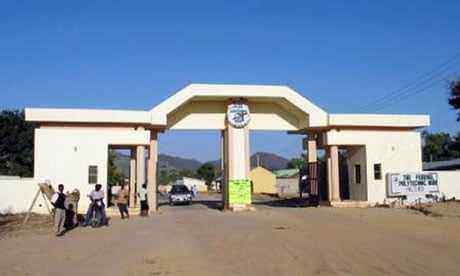Date 2014-07-13
Category Gist & Gossip

The Academic Staff Union of Polytechnics, ASUP, has suspended its over 10 months strike.
The strike has been suspended for three months to allow the new Education Minister, Ibrahim Shekarau, enough time to study the lecturers’ demands, the ASUP President, Chibuzor Asumogha, told the News Agency of Nigeria.
Mr. Asumogha said the strike was not suspended based on any offer but on intervention from stakeholders and the new minister of education.
“We have suspended the strike for three months, with effect from July 15,” he said. “It is not based on any offer but for the sake of the system and our students.”
Mr. Asumogha restated PREMIUM TIMES’ earlier report that the lecturers have been directed to resume work on Tuesday.
“We have directed our chapters to hold congresses on July 14 to take decision and resume work on July 15,” he said.
“The suspension is for only three months to give the new minister some time as requested; we do not want to welcome him with strike. The minister has given us assurance and we want to give him the benefit of a doubt.
“After three months, we will appraise the development,” he added.
The ASUP strike was suspended following its National Executive Council meeting held at the Labour House, Abuja.
PREMIUM TIMES had reported on how the ASUP leadership held a ‘productive’ meeting on Thursday with Mr. Shekarau.
The former Kano governor was sworn-in as minister by President Goodluck Jonathan on Wednesday and assumed duties on Thursday.
ASUP embarked on an indefinite strike in October 2013 over the deplorable state of government-owned polytechnics, monotechnics and colleges of technology.
The polytechnic lecturers also demanded the removal of dichotomy between HND and degree graduates and the release of the White Paper on the needs assessment of polytechnics
Other demands include review of the Polytechnic Act by the National Assembly, payment of CONTISS 15 arrears, improvement in condition of service and infrastructure in schools.
The federal government has met some of the demands, including the inauguration of governing councils and setting up of the needs assessment committees.
(NAN)